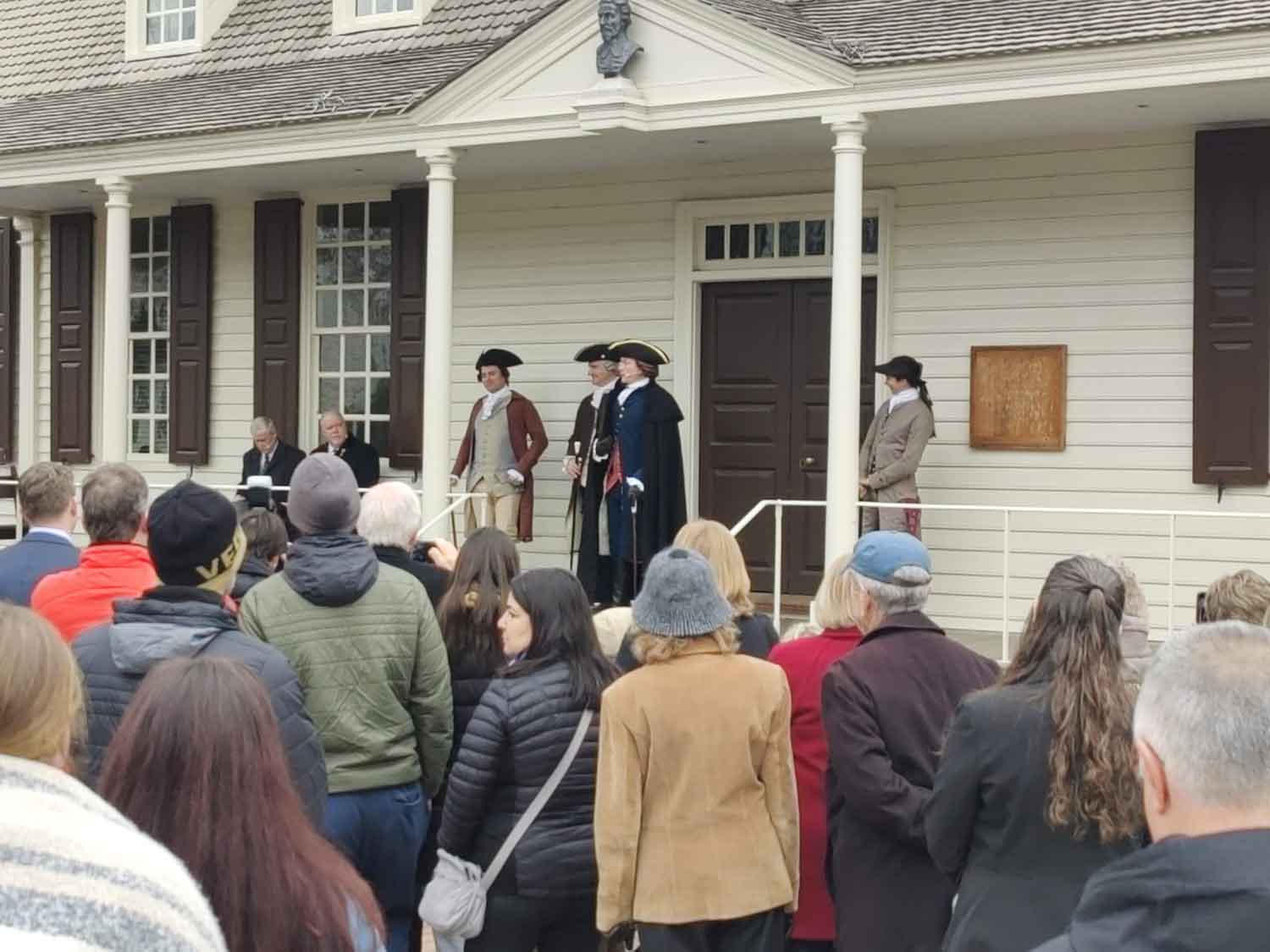Earlier this year, The Colonial Williamsburg Foundation, in conjunction with the Virginia American Revolution 250 Commission (VA250), hosted 300 delegates from across Virginia and 34 other states for “A Common Cause to All,” one of the nation’s first multistate events to plan commemorations for America’s 250th anniversary in 2026.
During the weekend of March 10-12, attendees collaborated with their peers from across the country and participated in important discussions around the commemoration of America’s 250th anniversary, all while they were immersed in the history of Colonial Williamsburg’s Historic Area. They also heard from a variety of renowned speakers, including The Colonial Williamsburg Foundation President & CEO Cliff Fleet; Colonial Williamsburg Foundation Board Chair Carly Fiorina; retired U.S. Supreme Court Justice and Colonial Williamsburg Trustee Emeritus Anthony Kennedy; journalist Bill Whitaker of “60 Minutes;” and historian Stacy Schiff.
The event also coincided with the 250th anniversary of Virginia forming its Committee of Correspondence, which began an intercolonial movement in 1773. On March 12, 1773, Thomas Jefferson, Patrick Henry and other Virginia lawmakers resolved to create intercolonial committees of correspondence — a vital network of communication among the colonies that would prove critical for the Revolutionary movement. To honor this momentous occasion, which took place at the Raleigh Tavern, now part of the Historic Area, a public event was held on March 12, where attendees affirmed a resolution to support, collaborate and partner with each other as we approach the 250th anniversary of the founding of our nation, on the steps of the reconstructed tavern.
Cliff Fleet kicked off the weekend by reminding participants of the significance of the gathering and the importance of collaboration:
“We must continue to work together, and think about how we use moments like this, where people will naturally be looking towards our history … History can be used to unite. We must tell it fully, completely, and accurately, including the triumphs, the tragedies and the challenges. But in doing so, we can do it in a way that brings us together as a nation and a people.”
The importance of planning for America’s 250th here in Virginia was echoed by Carly Fiorina:
“It was in Jamestown that the very first colonists arrived in the New World and where the first encounters with indigenous peoples occurred. The first ships carrying enslaved people landed here as well. The first representative government met. And it was here in Williamsburg, just a few blocks down the street at the Raleigh Tavern, that the committees of correspondence were created and an intercolonial movement towards independence was begun.”
As participants engaged in candid discussion around creating a meaningful commemoration of the 250th, the dialogue underscored the need to learn all of America’s history. As Christy Coleman, VA250 committee member and executive director of the Jamestown-Yorktown Foundation, noted, the occasion of America’s 250th anniversary provides us with the opportunity to learn and grow as a country:
“It’s a time for deep reflection. It’s a time for us to really look at not only how far we come, but the necessity where we still fall short. And we can’t do that unless we have an honest reckoning with our historical past and some of that legacy. And in some places that’s a little harder to do, but it’s necessary work if we want to continue to have a thriving, robust democracy”
We are honored to have collaborated with VA250 to convene such an important gathering. Moreover, throughout the weekend, we were proud to hear participants commend the daily pursuit of our educational mission, That the future may learn from the past.
In the words of Dr. Noelle Trent of the National Civil Rights Museum, Colonial Williamsburg “has taken bold steps…to tell a complex story, and really embracing the complications, the obstacles and the multifaceted nature of what society was like in the 18th Century.”
In the years leading up to 2026, we believe the nation’s attention will increasingly turn to Williamsburg, where so many formative events of America’s birth took place, and where, today, they come to life every day. Noted Fleet, “There is no other place you can hear Thomas Jefferson discuss the committees of correspondence from the porch of the Raleigh Tavern, where members of the freshly dissolved House of Burgesses met to secretly formulate plans for steps toward revolution. There is no other place you can stand on the land where a Black congregation built their place of worship and ushered in 250 years of the First Baptist Church.”
The Colonial Williamsburg Foundation is committed to seize this once-in-a-lifetime opportunity to make the greatest impact with our efforts to share a more complete, more relevant story of America.
Colonial Williamsburg is the largest living history museum in the world. Witness history brought to life on the charming streets of the colonial capital and explore our newly expanded and updated Art Museums of Colonial Williamsburg, featuring the nation’s premier folk art collection, plus the best in British and American fine and decorative arts from 1670–1840. Check out sales and special offers and our Official Colonial Williamsburg Hotels to plan your visit.
